Governance
The ExaGEO Executive Committee is comprised of academic members from our partner institutions
-
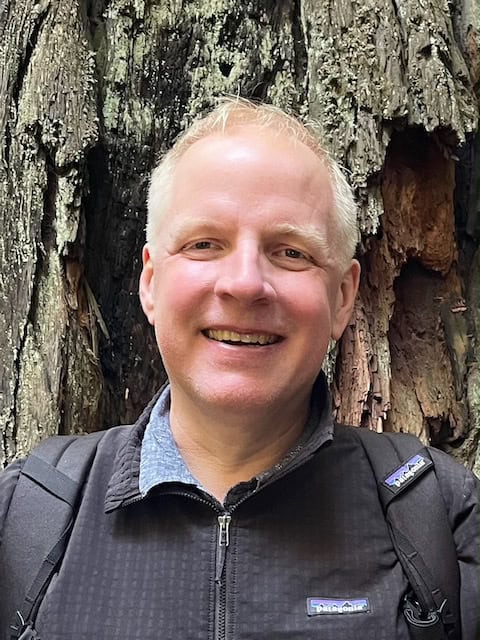
Professor Todd Ehlers
University of GlasgowExaGEO DirectorTodd is a Professor of Geosciences, as well as the Head of the School for Geographical & Earth Sciences at the University of Glasgow.
Todd’s research interests are in the past, present, and future interactions of climate, tectonics, and biota on Earth surface processes. Prior to moving to Glasgow, he was a Professor and former Department Speaker at the University of Tübingen, Germany, and an Associate Professor and Associate Chair at the University of Michigan, USA. He is an elected member of Academia Europaea (2018), recipient of the EGU Ralph Alger Bagnold Medal (2018), and former Moore Distinguished Scholar at the California Institute of Technology, Division of Geological and Planetary Sciences (2021-2022).
While in Germany, Todd was the speaker for the German priority research program (SPP 1801) EarthShape: Earth Surface Shaping by Biota (2016-2024), and a former European Research Council (ERC) Consolidator Awardee. He has served on numerous USA and German Science Foundation (NSF, DFG) Senate Commissions for the future of Geo- and Earth System Sciences, as well as science review panels for USA National Science Foundation, and DFG. Professor Ehlers is on the Board of Review Editors for Science (2013-present), and former editor in chief for Tectonics (2009-2013), and Earth Science Reviews (2006-2010).
Find out more about Todd here
-
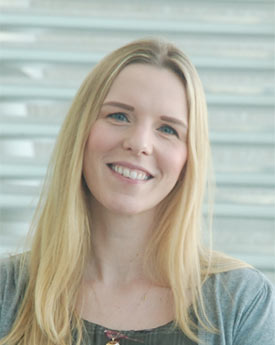
Dr Amber Leeson
Lancaster UniversityExaGEO Deputy DirectorAmber is Senior Lecturer in Environmental Data Science at Lancaster University, where she is also Theme Lead for Environment in the Data Science Institute and Co-Theme Lead for ice/water in CEEDS.
Amber’s research expertise lies in diagnosing and predicting atmospherically forced changes in ice sheet melting, and in hydrological processes which enhance ice sheet mass loss, using numerical modelling, remote sensing and data science techniques. She currently leads the NERC ‘Meltwater – Ice sheet interactions and the changing climate of Greenland (MII – Greenland)’ project and the ice sheet melting theme in the EPSRC ‘Data Science for the Natural Environment’ project.
Since Amber was awarded her PhD in 2013, she has since published over 20 refereed journal papers. Her work primarily focuses on ice sheets and climate change, however she is also involved in the application of data science to environmental problems. Her most recent paper (in Geophysical Research Letters) uses historical satellite data to investigate the evolution of supraglacial lakes on the Larsen B ice shelf in Antarctica before it collapsed in 2002.
Find out more about Amber here
-
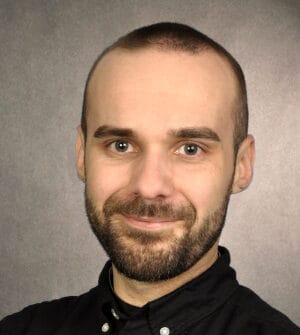
Dr Sebastian Mutz
University of GlasgowExaGEO ManagerSebastian is a Senior Lecturer in Paleoclimate Modelling in the School of Geographical & Earth Sciences at the University of Glasgow.
He investigates climate change and Earth system dynamics, primarily focusing on the interactions between climate and landscapes in mountains and coastal regions. He employs process-based models, empirical-statistical models, and techniques from AI. Sebastian is an advocate of „open science“ and multilateral collaboration, and an active member of the European Geosciences Union (EGU), EGU Outreach Committee, and Steering Committee of the Earth System Modelling & Artificial Intelligence Forum. He also serves as a topical editor for the journals Earth System Dynamics and Geoscience Communication. Recent outreach efforts include the development of open and accessible educational materials about climate science and earthquakes.
Find out more about Sebastian here
-

Professor Gordon Blair
Lancaster UniversityExaGEO Executive MemberGordon is a Distinguished Professor of Distributed Systems in the School of Computing and Communications, as well as Co-Director of CEEDS, both at Lancaster University.
He holds an EPSRC 5-year Senior Fellowship in Digital Technology and Living with Environmental Change, looking at how computer science can support environmental scientists in understanding the complexities of the natural environment, including new sources of data, new ways of storing and processing data, and new methods of making sense of such data. He also has a strong interest in the design and implementation of virtual labs in the cloud, offering collaborative environments for data-driven environmental science.
Find out more about Gordon here
-

Dr Vinny Davies
University of GlasgowExaGEO Executive MemberVinny is a Senior Lecturer in Statistics in the School of Mathematics and Statistics, at the University of Glasgow, specialising in analytical methods for digital twins.
He completed his PhD in 2016 at the University of Glasgow, where he focused on variable selection models for selecting antigenic sites in virus evolution. He then completed several post-doctoral research positions at the University of Glasgow and the University of Leeds, returning to the University of Glasgow in 2021 as a specialist in research and teaching on the interface between Statistics, Machine Learning, and AI.
Vinny’s research is primarily focused on analytical methods for digital twins, with applications across a wide variety of areas including biodiversity, manufacturing, and metabolomics. In 2021 he won the Royal Statistical Society’s Mardia prize to run a series of workshop of analytics for environmental digital twins. He has active collaborations with NatWest Group, CENSIS, and Apollo Tyres around different applications of digital twins. In addition to his work on digital twins, Vinny has a strong focus on computational metabolomics and leads a collaborative projects with Zoetis on heath related quality of life in animals.
Find out more about Vinny here
-
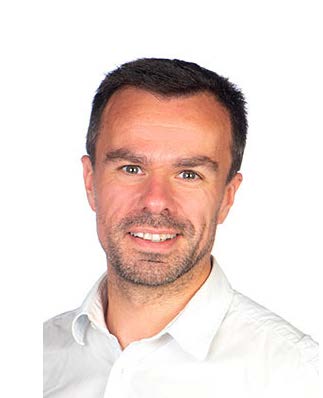
Professor Christopher Jewell
Lancaster UniversityExaGEO Executive MemberChristopher is a Professor in Statistics in the School of Mathematical Sciences, at Lancaster University.
He works at the interface between epidemiology, infectious disease modelling, statistics, and high performance computing. He originally trained as a veterinary surgeon, but became interested in epidemics through his experience working on the foot and mouth disease outbreak in the UK in 2001. He believes strongly in application-focused statistical research and in effective communication of scientific outputs.
As a trained vet, Christopher’s interests lie in decision support systems for disease outbreak response, public health and zoonotic diseases. He has applications in communicable diseases such as foot and mouth disease, vector-borne diseases such as theileriosis, and zoonoses such as campylobacteriosis. In computational statistics, he works on MCMC methods for inference on stochastic dynamical models. He has a particular interest in high performance computing techniques for applying modern statistical methods to real-time inference on large population datasets.
Chris currently has collaborations with MPI and IDRec in New Zealand, Massey University, the EPSRC programme grant I-Like, and RAPIDD in the US.
Find out more about Christopher here
-
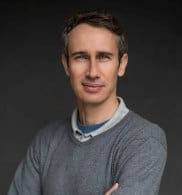
Professor Andrew McBride
University of GlasgowExaGEO Executive MemberAndrew is a Professor of Computational Mechanics (Infrastructure & Environment) in the James Watt School of Engineering, University of Glasgow.
He graduated with a BSc in Civil Engineering from the University of Cape Town (UCT), before completing his MSc and PhD at the Centre for Research in Computational and Applied Mechanics (CERECAM). Andrew then completed his post-doctoral studies at the University of Erlangen-Nuremberg, where he focused his research on non-classical models of diffusion, mechanics of surfaces and interfaces, and homogenisation, before again returning to CERECAM as a senior researcher.
Andrew started as a Senior Lecturer at the University of Glasgow in January 2016 and has since become a Professor of Computational Mechanics. He heads the Infrastructure & Environment Research Division and chairs the Engineering Growth Estates Group. In addition, he is also the Deputy Director of the Glasgow Computational Engineering Centre (GCEC) and Associate Head of the James Watt School of Engineering.
Find out more about Andrew here
-
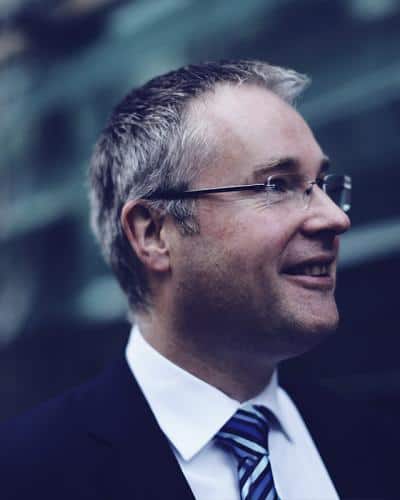
Professor Mark Parsons
University of EdinburghExaGEO Executive MemberMark is the Associate Dean for e-Research within the College of Science & Engineering, and Director of EPCC, both at the University of Edinburgh.
In his role as Associate Dean, he provides advice and guidance to the College and University on all aspects of modern research infrastructures with a particular focus on high performance computing and data analytics.
He joined EPCC, the supercomputing centre at The University of Edinburgh, in 1994 as a software developer working on several industrial contracts following a PhD in Particle Physics undertaken on the LEP accelerator at CERN in Geneva. In 1997 he became the Centre’s Commercial Manager and subsequently its Commercial Director.
He has many interests in distributed computing ranging from its industrial use, he leads the FORTISSIMO projects, to the provision of pan-European HPC services through the PRACE Research Infrastructure. His research interests include Exascale computing and novel hardware design with a particular focus on extreme I/O.
Find out more about Mark here
-
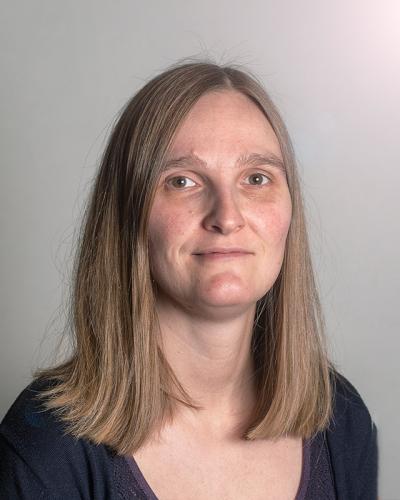
Professor Michèle Weiland
University of EdinburghExaGEO Executive MemberMichèle is a Professor at EPCC, University of Edinburgh.
She joined EPCC in 2006 after studying Medical Informatics (University of Heidelberg) and Computing (Napier University), and completing a PhD in Music & Artificial Intelligence at the University of Edinburgh. Her main research interests are in the fields of energy efficiency in HPC, software performance analysis and optimisation, and novel hardware.
Michèle is currently working on a number of projects: (1) the ASiMoV Strategic Prosperity Partnership with Rolls-Royce (Technical Project Manager); (2) the ARCHER2 eCSE project, which is developing in-situ analysis capabilities for pre-Exascale simulations with Xcompact3D (Co-I); (3) ELEMENT, the Exascale Mesh Network (Co-I); (4) SAGE2, a H2020 project on object storage technologies (Edinburgh PI); and (5) HPC-WE, an EU-Brazil project on applying HPC to Wind Energy simulations (Edinburgh PI).Find out more about Michèle here
